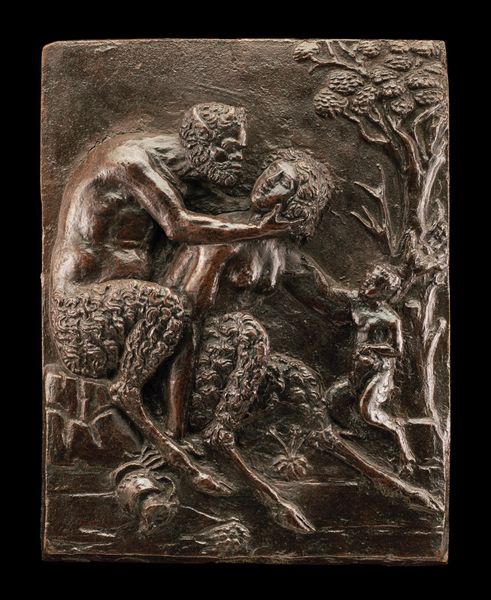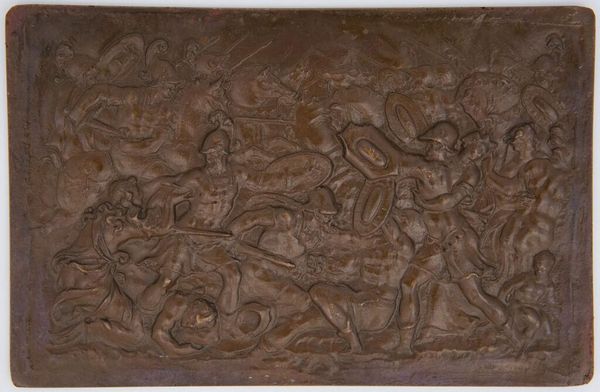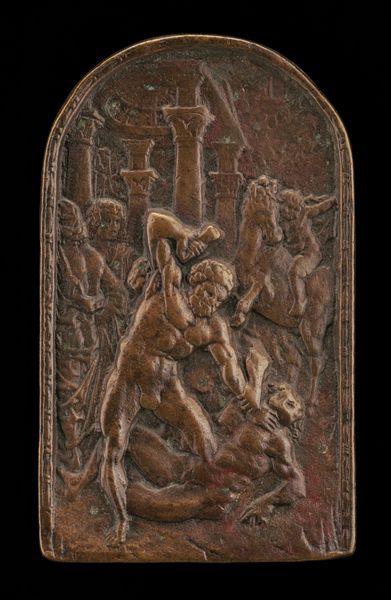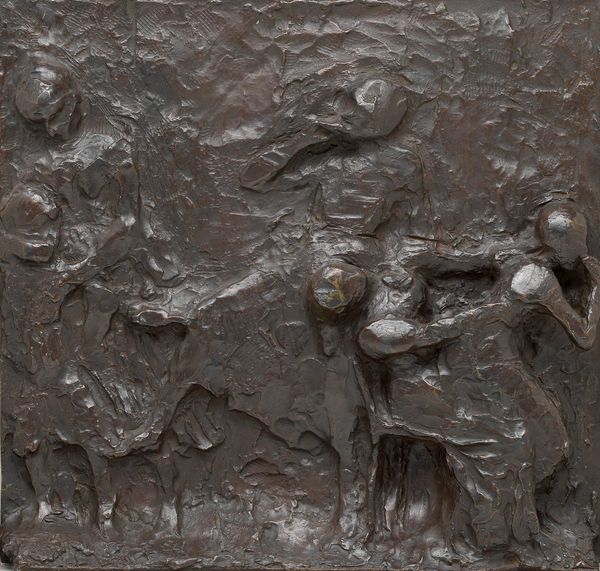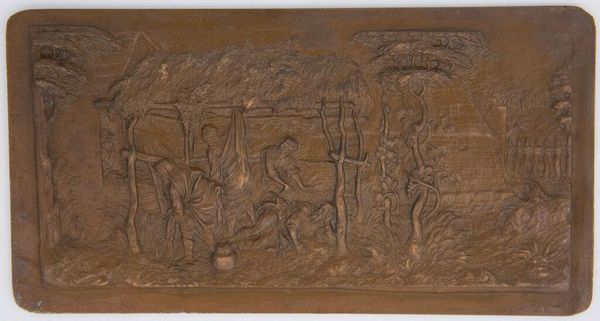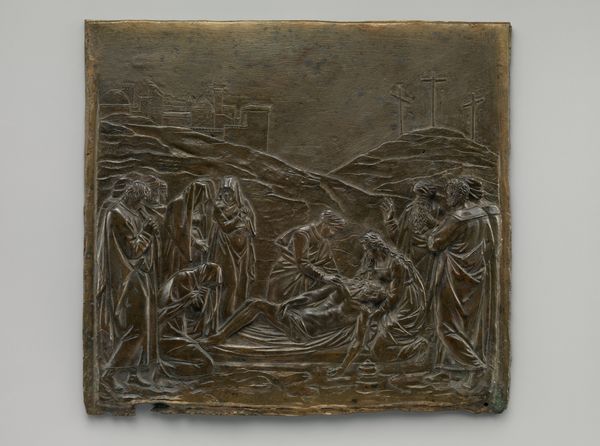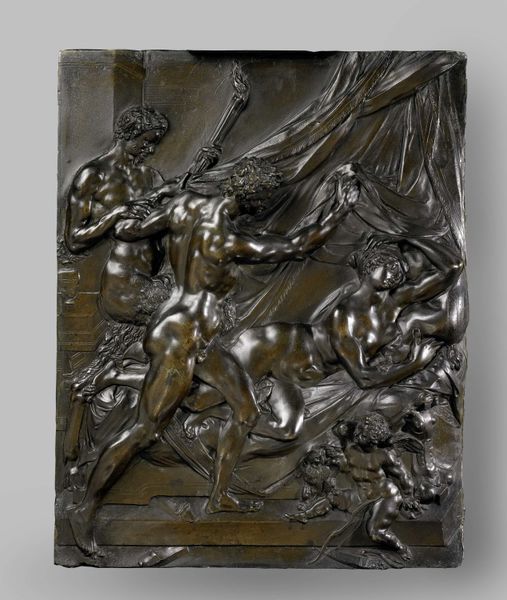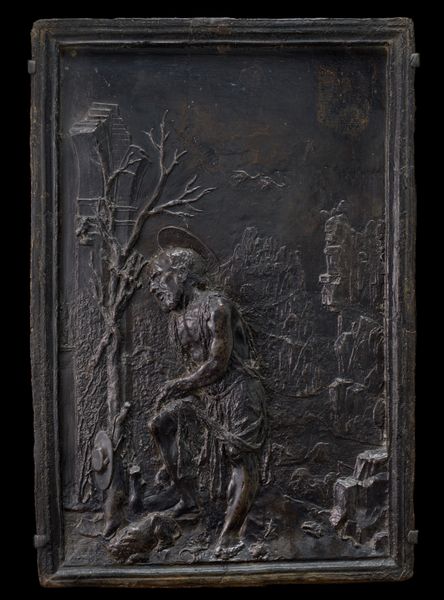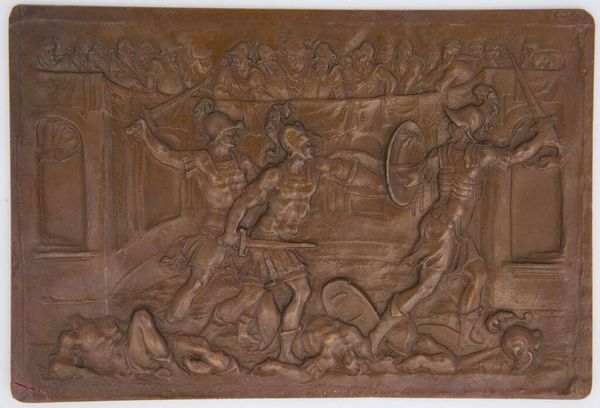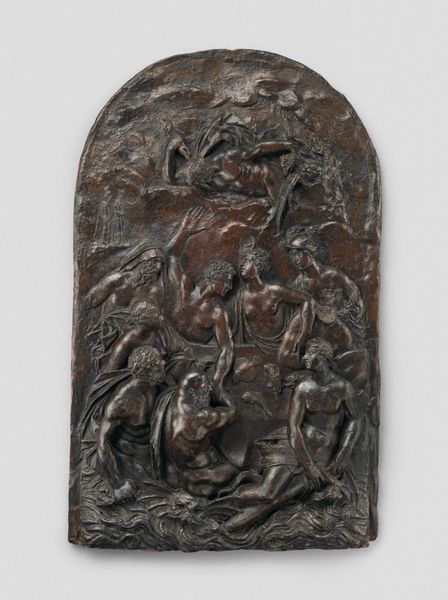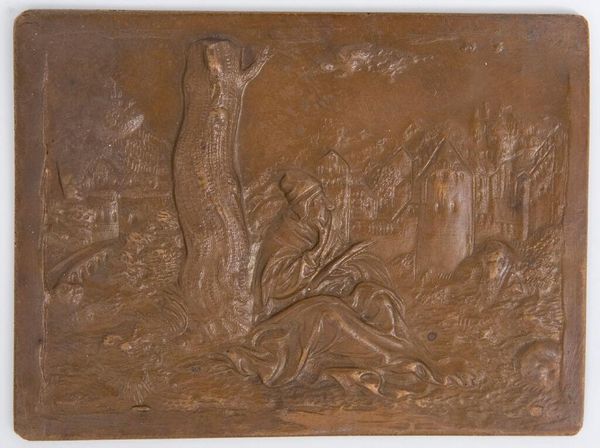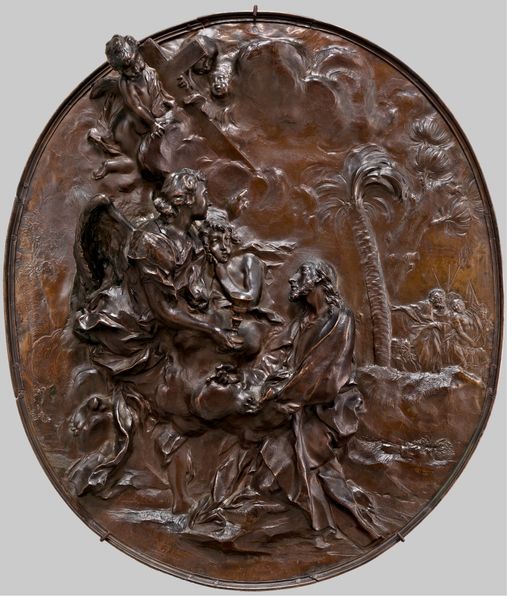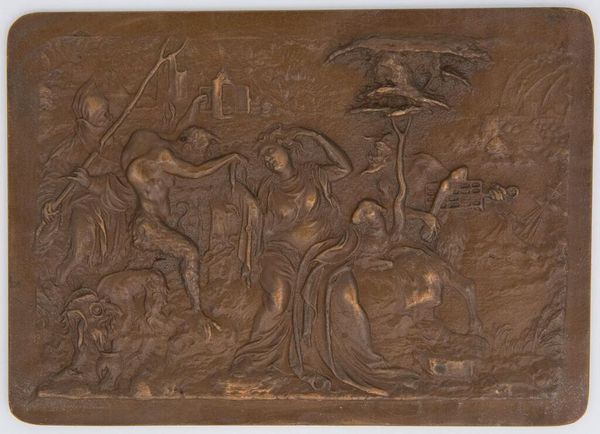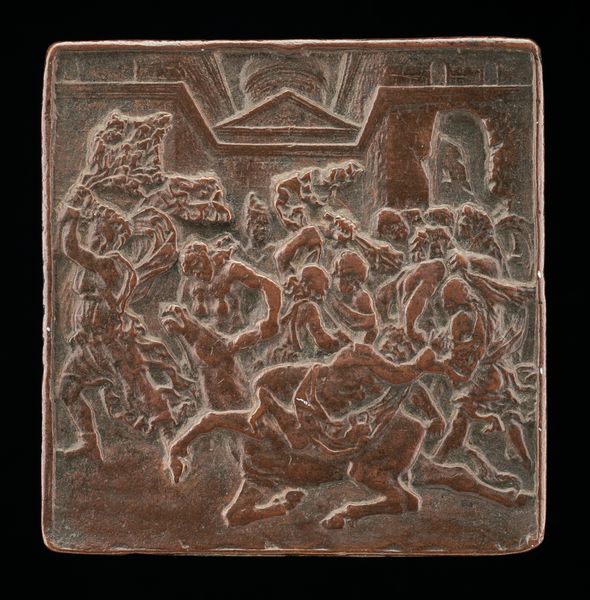
bronze, sculpture
#
sculpture
#
bronze
#
figuration
#
11_renaissance
#
sculpture
#
history-painting
#
italian-renaissance
Dimensions: 6.7 cm (height) x 5 cm (width) x 0.3 cm (depth) (Netto)
Editor: This bronze relief, “Cacus Stealing the Oxen of Hercules” by Moderno, dates back to around 1500. The figures are so muscular and the bronze medium seems very charged, and it has a lot of texture in such a compact form. What symbolic significance might it carry, beyond just the mythological scene itself? Curator: Ah, an excellent observation. The struggle between Hercules and Cacus isn't just about cattle rustling; it's about order versus chaos, civilization against brute force. The imagery speaks volumes. Hercules, as a hero, embodies reason and civic virtue, a figure revered in Renaissance thought. Editor: And Cacus? He seems like a dark mirror image, almost. Curator: Precisely! Cacus represents untamed nature, deception, and the subversive elements lurking at the edges of society. The cave where he hides the stolen oxen isn't just a location, it's a symbol of the hidden, the irrational aspects of the human psyche. He dwells apart. Consider, too, that Hercules’s club might also stand for that very control over chaos, a patriarchal signifier. What reads to you of that relationship? Editor: That makes so much sense! So, it is a battle of forces that has resonated through the ages. Is that how such artworks continued to be significant across changing social contexts? Curator: Indeed. It’s a potent image that's been continually re-interpreted across centuries, adapted to justify power dynamics and even cultural hierarchies. The artwork itself becomes a vessel for collective memory, its imagery evoking a powerful narrative shorthand for fundamental human conflicts, in every time. Editor: That’s fascinating; I’ll never look at mythological scenes the same way again. Thank you! Curator: My pleasure! I learned from you also. The questions we bring to art are never closed, or finite.
Comments
No comments
Be the first to comment and join the conversation on the ultimate creative platform.
